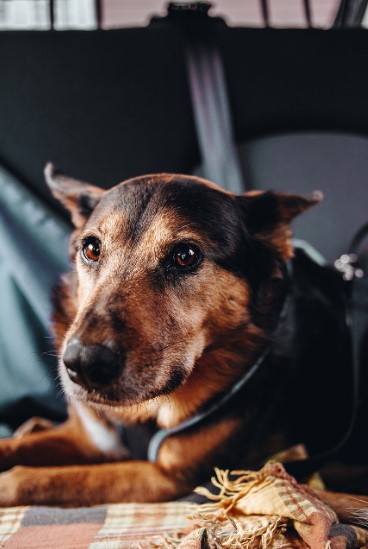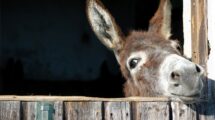As our beloved canine companions age, their needs and care requirements evolve, demanding a thoughtful and tailored approach to ensure their golden years are filled with comfort and vitality. Older dogs, like their human counterparts, may experience various health challenges that necessitate special attention. From dietary considerations to managing joint health, the key to ensuring a happy and healthy senior canine lies in understanding and addressing their unique needs. In this article, we will explore top tips for caring for older dogs, providing valuable insights into fostering their well-being during this crucial stage of life.

Nutritional Excellence
One of the fundamental aspects of caring for an older dog revolves around their nutritional requirements. As dogs age, their metabolism, energy levels, and digestive systems undergo changes that demand a shift in dietary habits. Opt for specially formulated senior dog food that accommodates their lower energy expenditure and addresses potential health issues. Essential nutrients such as Omega-3 fatty acids, glucosamine, and antioxidants become increasingly vital to support cognitive function and joint health. Regular vet check-ups can help in monitoring your dog’s weight and adjusting their diet accordingly, ensuring they receive the right balance of nutrients to thrive in their senior years.
Mindful Exercise and Mental Stimulation
Maintaining an appropriate level of physical activity for older dogs is crucial for their overall well-being. While they may not have the same boundless energy as in their youth, regular, low-impact exercises tailored to their abilities can help manage weight, enhance joint flexibility, and boost their mood. Engaging in activities that provide mental stimulation is equally important, as cognitive function tends to decline with age. Puzzle toys, gentle training exercises, and interactive games can help keep their minds sharp and stave off boredom. Understanding and respecting your dog’s limitations and preferences is key to designing an exercise routine that fosters both physical and mental health.
Regular Veterinary Care and Monitoring
Routine veterinary care becomes increasingly essential as dogs age. Regular check-ups allow veterinarians to detect and address potential health issues early on, ensuring prompt intervention and optimal management of age-related conditions. Monitoring your dog’s behavior, appetite, and bathroom habits at home is also crucial, as subtle changes may indicate underlying health concerns. Keep an eye out for signs of arthritis, dental issues, or changes in vision and hearing. In addition to physical health, addressing emotional well-being is equally vital. Older dogs may experience anxiety or depression, and providing them with a comfortable and familiar environment, along with affectionate companionship, can significantly contribute to their overall happiness and quality of life.
Comfortable Sleep with Proper Bedding
Ensuring that your older dog has a comfortable and supportive place to rest is a crucial aspect of their overall well-being. Large dog beds, specifically designed for senior canines, offer orthopedic support that can help alleviate joint pain and promote better sleep. As dogs age, they may be more prone to conditions such as arthritis or hip dysplasia, making the choice of bedding especially important. Investing in quality large dog beds with memory foam or other orthopedic features can significantly improve their sleep quality and overall comfort. Providing a designated and cozy sleeping space also helps in managing stress and anxiety, contributing to a more relaxed and contented senior dog. Integrating this element into your older dog’s care routine complements the other tips mentioned, creating a holistic approach to their health and happiness in their golden years.

Tailored Grooming and Hygiene
As dogs age, their grooming needs may change, requiring a more tailored approach to maintain their health and comfort. Older dogs may experience a decline in skin and coat health, making regular grooming sessions crucial for monitoring changes and addressing any issues promptly. Brushing their coat not only keeps it clean but also stimulates blood flow, promoting a healthier skin condition. Additionally, inspecting their ears, teeth, and nails becomes increasingly important, as these areas can be prone to infections and discomfort. Maintaining proper grooming practices contributes not only to their physical health but also to their emotional well-being by ensuring they feel clean, comfortable, and loved.
Adapted Living Spaces
Modifying your living spaces to accommodate the changing needs of your older dog is a thoughtful way to enhance their daily comfort. Create easy access to their favorite spots by placing ramps or steps near beds or sofas, reducing the strain on their joints. Slip-resistant flooring can prevent accidents and provide stability, especially for dogs with arthritis or mobility issues. Ensuring that their living spaces are warm and draft-free is also essential for their comfort, as older dogs may be more sensitive to temperature changes. By making these simple adjustments, you create an environment that supports their physical health and allows them to move around comfortably, contributing to a happier and more contented senior dog.
Caring for older dogs requires a comprehensive and adaptable approach, considering their changing physical and emotional needs. From providing nutritious meals and tailored exercises to investing in large dog beds and creating adapted living spaces, each aspect contributes to a holistic strategy for ensuring a fulfilling and comfortable life for your senior canine companion. By incorporating these tips into your routine and staying attuned to your dog’s requirements, you can navigate their golden years with grace and gratitude, cherishing the timeless bond between humans and their loyal four-legged friends.






